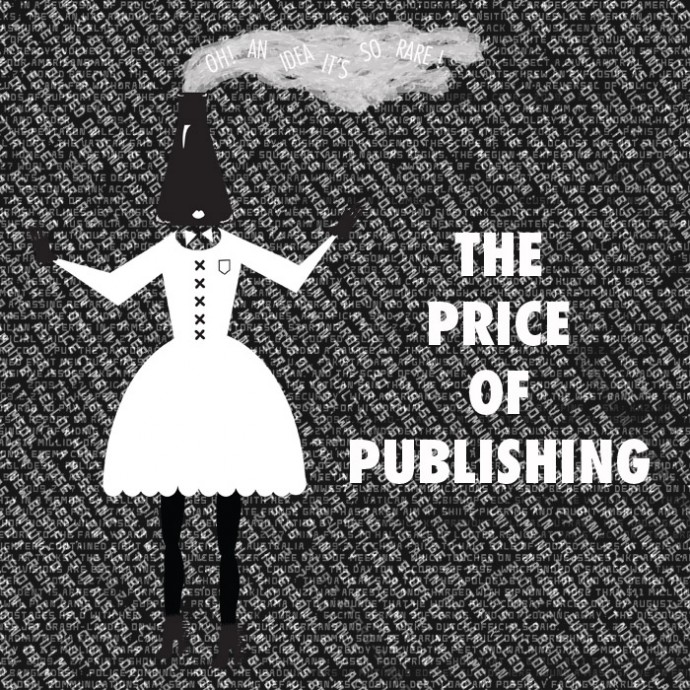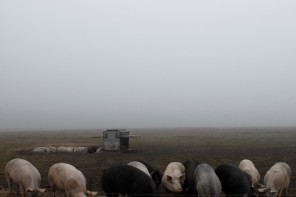In France research seems to be the El Dorado of all well-educated young adults. The path is hard but it’s worth the reward. The researcher is offered a permanent contract from an institute after attending specific schools such as the Ecole Normale Supérieure and completing a final thesis. Having the job security allows him to focus more or less on the topic of his research. Although this may appear to be an attractive idea in itself, the CNRS (France’s national research centre) is going through an important crisis that includes political and financial problems. A physician accepted to reveal the dark side of this national symbol.
I can’t explain how at the age of seven I became sure I wanted to be a researcher. That’s not a typical childhood dream. The area of research wasn’t clear but I had a passion for understanding. The world was full of questions and I needed answers. I hated the school system where everything was compartmentalised. Science and philosophy mix together the moment you begin to question the world. Newton introduced the law of gravity in a book called Mathematical Principles of Natural Philosophy. He was right; we shouldn’t separate science and philosophy from each other. Mathematics and physics help me to rationalise my approach to the universe whilst philosophy adds a universal dimension to my work. What makes them so closely related is the way they apprehend the world. Every time the universe appears to be a research domain where we have to unlearn everything we know in order to go further.
I had a hard time finding my path, not because I wasn’t smart enough but because I was a girl. The Ecole Normale Supérieure became co-ed in 1986 and there were huge differences between both teachings. I couldn’t accept to be seen as a gender and not as a future scientist with a desire for full knowledge. I decided to circumvent the system by integrating into a research laboratory. I continued my studies in America and got offered a place to enter the CNRS in the Department of Physics in 1981. People will think it meant the acknowledgment of my work as a scientist but I was doubting.
Research is definitely a man’s world. I am one of the few woman in my department. That makes communication with my colleagues hard because we don’t have the same objectives. The general atmosphere at work is unbearable. Competition, treachery, gossip – where is the passion I thought to find? It must have disappeared with the obligation researchers have to show results. We must officially publish at least one article per year in a scientific paper in order to receive subventions. The more we publish, the better for our career. It’s just a way to show the world we are being productive. But efficiency? Most of the time it’s an illusion. Ninety-nine percent of what is being published is only a referencing of what already exists. Edison used to say, “genius is one percent inspiration and ninety-nine percent perspiration”. Whilst most of my colleagues were sweating, I chose to get inspired and hang out with gay co-workers.
I always refused to become an official. There is a creative factor in research that people often forget. One of the main problems in our system today is that the researchers are lazy. Their creativity has been killed by job security. You can stay ten years without publishing any results and still be paid through the referencing of your name in others papers. Why make things difficult? The passion has disappeared. Creativity still exists thanks to the one percent left. They rethink/rebuild the world. I always manage to come up with new ideas and I can’t promise to be productive for all of my life. Maybe one day I’ll fail to continue my studies because I’ll reach an impasse. Then what? I cannot accept to be paid for nothing. I don’t even have the satisfaction of being rewarded for my teaching as I’m not forced to teach. This is a shame because I love it !
In fact, we are stuck in this system that I like to call ‘science by weight’. Quantity has become more important than quality. Most researchers feel forced to produce in a way that kills their creativity because they don’t have any time left to think. We are in a phase of industrialisation in research. The ideas are not innate; they need time to grow through readings, discoveries and maturation of course. I travel yearlong around the world to meet colleagues efficient in my domain of competence. They have the material and tools I lack in my office in Paris because I’m the only one in my department of physics that studies turbulent flows. Most of the time I have to deal with the administration to get what I need. My colleagues publish without passion the same results year after year because they don’t have time to produce new results. We don’t have a lack of money in the Department of Physics but a lack of passion.
Let me explain an important thing. In France we are still lucky as we are ‘fonctionnaires’ or, in other words, officials. That means we as researchers have total freedom. We can do research on whatever we want as long as we stay in our field of competence. Of course, by being totally independent, we can be left alone and not receive the financial support our research needs. It’s a risk I’m always willing to take in order to develop knowledge in my domain. Yet, I fear this privilege won’t last another ten years because it costs too much money for the state and the CNRS is a company with its strengths and weaknesses.
The CNRS is controlled by the ‘national board’. This board decides the future of every laboratory and the level of funding. It also decides who is going to integrate into the prestigious centre of research. The aberration in this is that it is controlled by trade unions. I always wondered what the CGT is doing on this board as it is supposed to defend the exploited worker and not the well-paid scientist. I was once offered to enter this committee but I declined. I refused to be the doll of the directors, agreeing on everything. The way I work shows how productive I am by being independent. I would have accepted this position if the directors had heard my proposition; on the board should sit one third elected researchers – that are part of the corporate union – and one third nominated researchers. The last third should be chosen by lots. However, it’s hard to change the structure of this institution that was ironically created to modernise the old-fashioned Sorbonne in 1936.
The third problem I see in research is almost a political one. I’ve been fighting nonstop for three years to reveal this scandal but it seems to engage no one, at least in France. When one of your articles is published in a scientific review you lose all your rights with regards to the paper. It means everybody is free to use it. I learned in 2008 that Elsevier, the first publisher of scientist reviews, had bought back all scientific articles in order to resell the library in every research department for four million dollars. Four million dollars! My colleagues just realised that they didn’t have access to online articles anymore because their school didn’t have the money to pay for it. As a researcher I keep thinking, ‘how on earth could knowledge be chargeable?’. Our work obliges us to be constantly aware of new results so we need access to those articles. I’m also working for my passion and not for money. Another question I ask is, ‘why do we have to pay Elsevier?’. It’s our works that are being published. Has Elsevier been taking part in the projects? No, of course not. However, Elsevier is listed on the Stock Exchange and it has stockholders to satisfy.
See the price of knowledge: four million dollars. Sometimes I doubt I’m helping to understand the law of the universe. I had a passion – it is somewhat still present – but the CNRS showed me it was more important to be quantitatively rather than qualitatively productive. I’m a creator and I should have the time and space to create. I like to quote Einstein saying, ‘Oh! An idea, it’s so rare!’, and it is! Don’t think that I’m staying all day long at my desk searching for new ideas. No. I battle with the administration and with Elsevier. I travel to meet my fellows, I help students in doctoral thesis, I try to publish as soon as I can. I’m committed to my work but I envy the freedom of the artist whose only purpose is to create and to listen to his muse. I understand completely why young people today forsake research; it is not the royal path anymore. If you want to make money, just work for a bank or a big company: there remains the future! I’m waiting for the day when the CNRS will enter the world of stock options. Research will finally be over.







